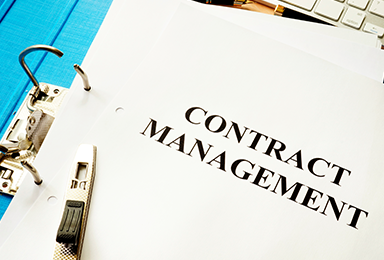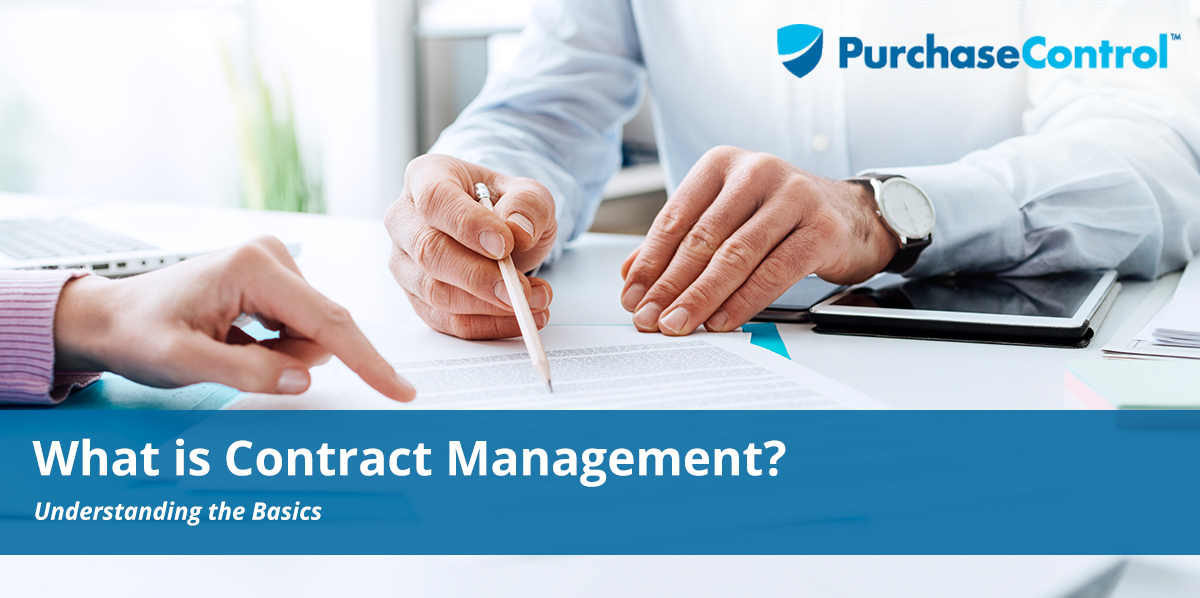What is Contract Management?
Contract management refers to when someone takes the responsibility of managing contracts for vendors, employees, or other parties. To be a successful contract manager, it is important to have the legal knowledge to spearhead the process. Many companies do not have set contract managers, however, companies that frequently work with the government and major defense firms tend to use them.
Managing contracts is often an overlooked form of management. Managers frequently interact with employees and some of the discussions will naturally relate to compensation. Some conversations deal with contract management. Other times, organizations need to manage contract agreements with other businesses such as vendors. It’s not discussed much, the contract management remains an important business topic. If you’re not sure how the process works, it’s crucial to understand the basics.
The contract management process manages the creation of contracts as well as the execution and Analysis to maximize both operational and financial performance throughout an organization while aiming to reduce Financial Risk. Companies are under an ever-increasing amount of pressure to reduce their costs while simultaneously improving performance.
“Because contract management can be highly time-consuming, organizations need an effective and automated contract management system.”
Contract Management Basics
When two companies wish to work together, a contract specifies the activities both organizations must accomplish and the terms through which they will each fulfill their obligations. contracts have a major effect on business profitability because of the emphasis on revenue and expenses.
If a contract is poorly phrased, one company may lose thousands of dollars over a simple technicality that they lacked the resources to identify. Effective contract management can create a strong business relationship and build a path to greater profitability over the long-term, but only when managed correctly. As such, it is a good idea to include a lawyer or legal department in any contract management discussion. The precise wording of contracts is crucial when it comes to contract management.
Contract management also applies to managing various contracts with employees or freelancers. These contracts occasionally require management and changes that benefit both parties.
Typically speaking, contract management involves a few stages. The pre-award phase is where all work that takes place prior to a contract being awarded to a vendor or employee occurs. In the middle, you have the contract award process. At this stage, all the paperwork to make the agreement final is handled. And third, there’s the post-awards stage where most of the contract management and maintenance comes into play.
The three basic stages provide a simple way of understanding contract management. However, the process is more complicated and can be broken down into additional stages depending on how detailed of a view you want.
Elements of Successful Contract Management
Simply having professionals in place to handle contract management isn’t enough for your company. Your employees must be familiar with the presence of processes and software to ensure compliance and analytical needs are met. When a contract management strategy is successful, companies can expect that:
- Business benefits and financial returns are realized
- There are no contract disputes or surprises
- Suppliers are cooperative and responsive to your company’s needs
- Service delivery is satisfactory for both parties
Activities Involved in Good Contract Management
To have solid contract management, an organization must Implement successful post-award and Upstream activities. At the pre-awards stage, employees need to focus on the reason for establishing the contract and if a vendor can fulfill the terms of the agreement.
They must also consider how the contract will work once it is awarded. Avoiding unwanted surprises requires careful research and clarity and the purpose of the actual contract.
Successful contract management requires a certain level of flexibility on the part of both parties involved along with a willingness to adapt contract terms to reflect any change of circumstances. Problems are inevitable which means companies have to be prepared for the unexpected and able to adjust contract terms as necessary.
The Nine Stages of Contract Management
Contracts are a major part of the end of quarter Crunch and are divided into stages to organize structure and efforts of the typical contract process. When done manually, building a contract can take a lot of time. The process includes many of the following stages:
Initial Requests
This begins the contract management process and involves identifying documents and contracts that support the contract’s purpose.
Writing the Contracts
Drafting a contract by hand takes a lot of time, but the use of an automated contract management system streamlines the process.
Contract Negotiation
After the contract is drafted, employees need to be able to compare versions of the contract and take note of any discrepancies to reduce negotiation time.
Contract Approval
Most bottlenecks in the process will occur at this stage. Organizations can preemptively fight against this by creating tailored approval workflows that include both serial and parallel approvals to keep decisions moving quickly.
Contract Execution
At this stage, users can control and shorten the signature process by using back support and electronic signatures.
Obligation Management
This is where a great deal of project management comes into play to make sure that deliverables are met by key stakeholders and the contract value is not deteriorating through the early phases of growth.
Revisions and Amendments
It can be difficult to gather all pertinent documents for the contract’s initial drafting. When and if overlooked items are located, there must be systems in place to amend the original contract.
Auditing and Reporting
Contract management isn’t drafting a contract and then filing it away. Audits are vital to determine both organizations’ compliance with the terms of the agreement and address any possible issues that may arise.
Contract Renewal
Relying on manual contract management methods often results in missed renewal opportunities and lost business Revenue. Automating the process allows companies to identify renewal opportunities and create new contracts.
The majority of contract management comes down to handling these nine steps. It is crucial to manage the contract lifecycle. As different contract types move through their various stages, contract managers must monitor any potential changes or breaches of contract. If an employee or business partner is unhappy with their contract, it may be worth making changes to it. though it is important to follow all contractual obligations, it is essential to make sure both sides are happy.
There are many times during the management process when contract lifecycle management (CLM) becomes vital. Risk management and vendor performance are important to consider during the contract management process. For instance, if a vendor fails to meet their contractual obligations, it may be necessary to rework the contract or enforce some kind of disciplinary measure.
Contract Management Software
While many businesses opt for manual contract management, this approach is highly inefficient because it takes away so much from potential productivity and leaves considerable room for error.
Integrating business processes with an automated contract management system frees up countless man-hours and automates a number of processes associated with managing a contract, including contract creation, to create more value for a company.
Contract management software stores contract data along with vital Information about contracts relating to leases, licensing agreements, and providers. It streamlines the contract administration process by creating a uniform record and centralized location for each contract’s processes.
Contract management software makes it easier to keep an eye on complex contracts without the need to rely solely on paperwork. It allows employees in multiple locations throughout your organization to access any and all contracts in a central repository. If there is ever any question about contract performance or terms, users with the appropriate level of access can quickly and easily review the entire contract.
PurchaseControl can simplify your supplier contract management processes.
Find Out How








